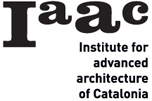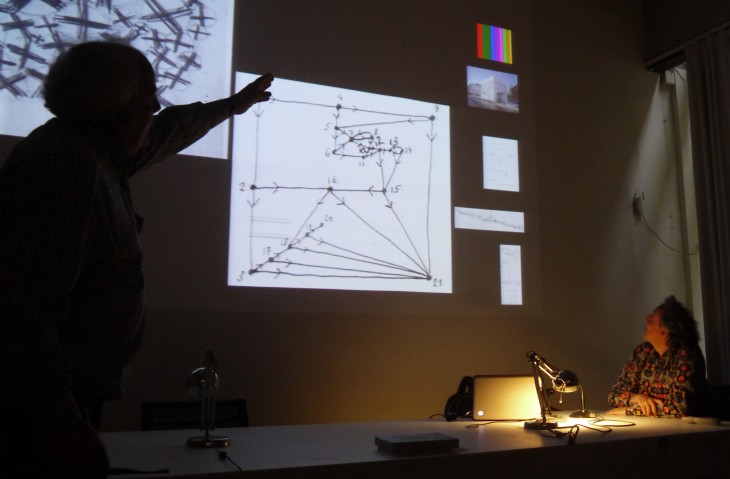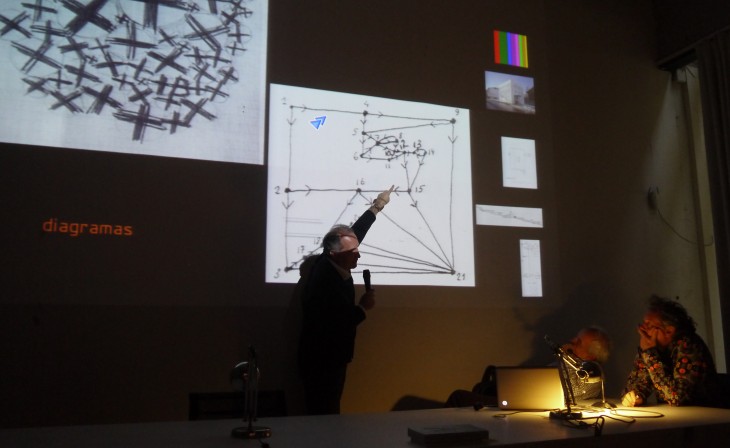Today’s theoretical duet saw Federico Soriano (director of the Departamento de proyectos arquitectonicos of the ETSAM) and Pedro Urzaiz (secretary of the COAM) as the protagonists of a discourse revolving around the concepts of telling tales. In particular, how can one tell the tale of a particular scene or architectural element? It seems that an infinite amount of different tales can be told, using many different tools or conditions to do so.
The presentation was divided into 3 parts:
- The short film “Codigo 7” by Nacho Vigalondo
- The presentation of a built project through 6 conditions
- The project of the Centro de Salud San Martin by Pedro Urzáiz and Carlos Pérez-Pla
Part 1: Codigo 7
A man wakes up in the morning and makes coffee, not knowing who is trapped in a virtual reality world or discover his true identity. The same scene is then depicted with 3 different narrations resulting finally in three different stories…which one was true? Does it matter?
Vigalondo famous trilogy, whose first delivery was nominated for the Grand Jury Prize at the 3rd edition of Nodofilmfest.com.
Part 2: The presentation of a built project through 6 conditions
The six conditions presented were the diagram, the program, the material, the floor plan, the cross section, and a construction detail.
How one perceives an architecture, or an architectural element, and the relations between these, their organization, the friction between these, and the margin of error, all contribute to a diverse and ever changing tale or story.
Part 3:Centro de Salud San Martin by Pedro Urzáiz and Carlos Pérez-Pla
Finally, after having heard the tale of the Centro through the diagram, program, material, floor plan, cross section, and detail, we were able to really visualize the project and understand the concept of a non-linear description, resulting in an interesting debate on how far one can push this non-linear way of thinking in architecture.





